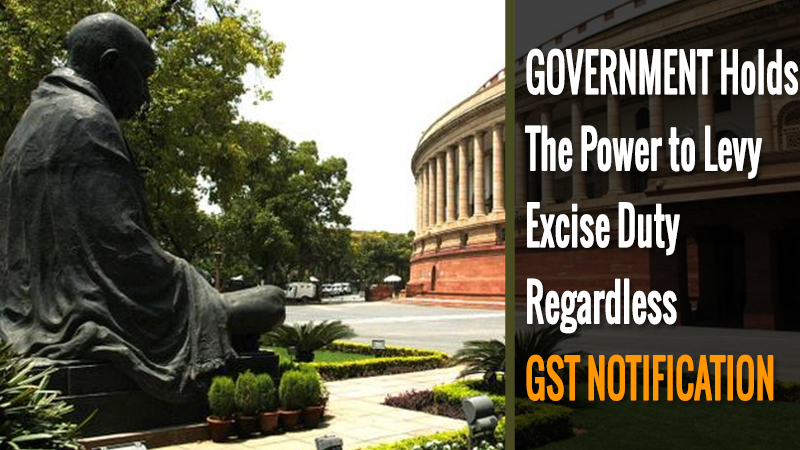
As this provisions details, “Notwithstanding anything in this Act, any provision of any law relating to tax on goods or services or on both in force in any state immediately before the commencement of this Act, which is inconsistent with the provisions of the Constitution as amended by this Act, shall continue to be in force until amended or repealed by a competent legislature or other competent authority or until expiration of one year from such commencement, whichever is earlier.”
Getting to the fact, the Section 19 says a tax on goods and services to be taxed in any ‘state’, which refers to a geographic entity of state and not by states. Secondly, withdrawal of power to levy tax lies with the competent authority and not the state legislature.
Read Also: GST Impact on Oil and Gas Sector in India
“The department of Revenue examined the validity and implications of notes dated 10th and 16th Sept wrt existing taxes imposed by the Union and states.” Revenue secretary Hasmukh Adhia tweeted. Adding, “There is no legal infirmity in these notifications. Law dept has confirmed that there appears to be no legal requirement to issue any further clarification or notification in this regard.”
The notification has rolled out which conveys that, the government will not levy excise on goods other than petroleum products from this date, implying a loss of power to tax other goods. The notification also binds states to accept GST within a year or they will lose power to tax.
The Constitution (122nd Amendment) (GST) Act, 2014, passed by Parliament last month to roll-out GST, has made changes in Entry 84 of List 1 or the Union List of the 7th Schedule of the Constitution. The common felt notion is that the government has given the power to levy excise duty leaving some exceptional goods.